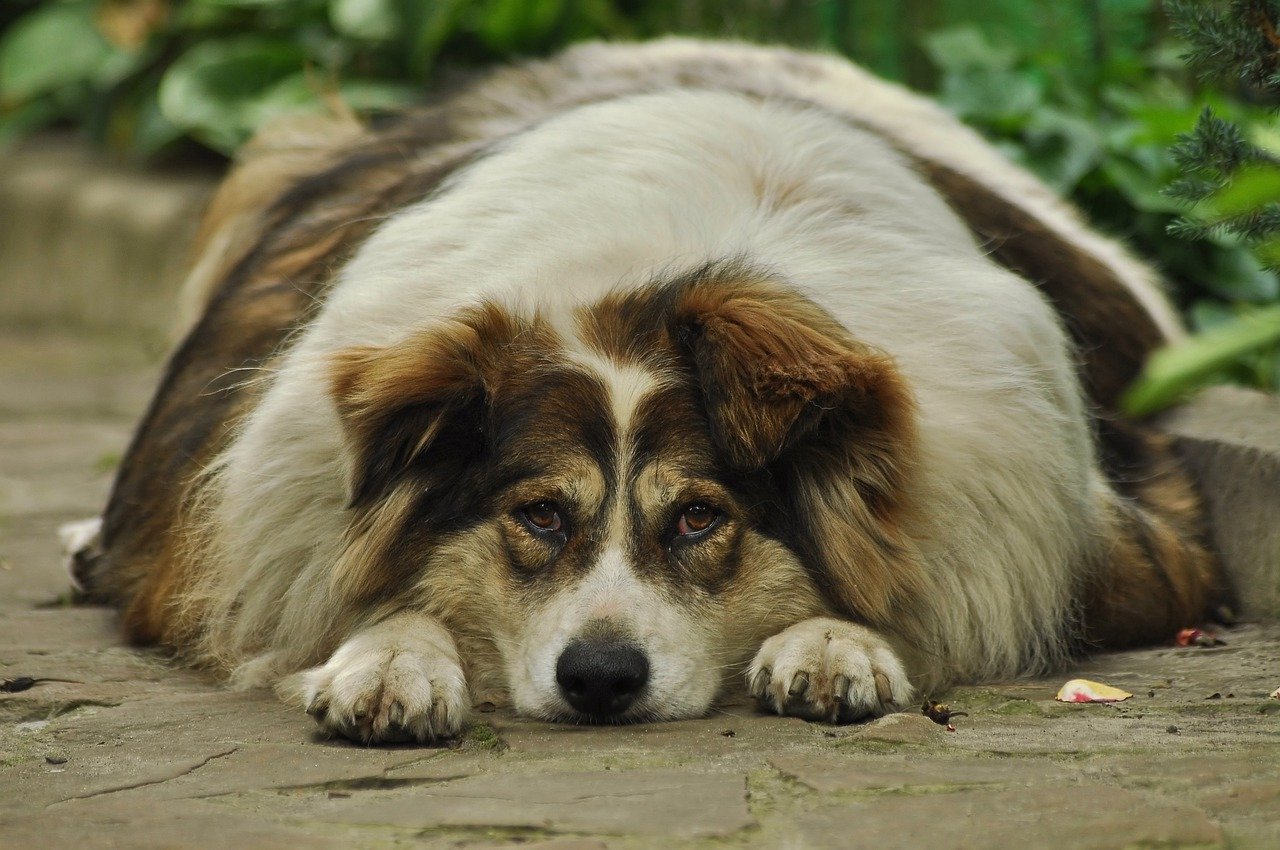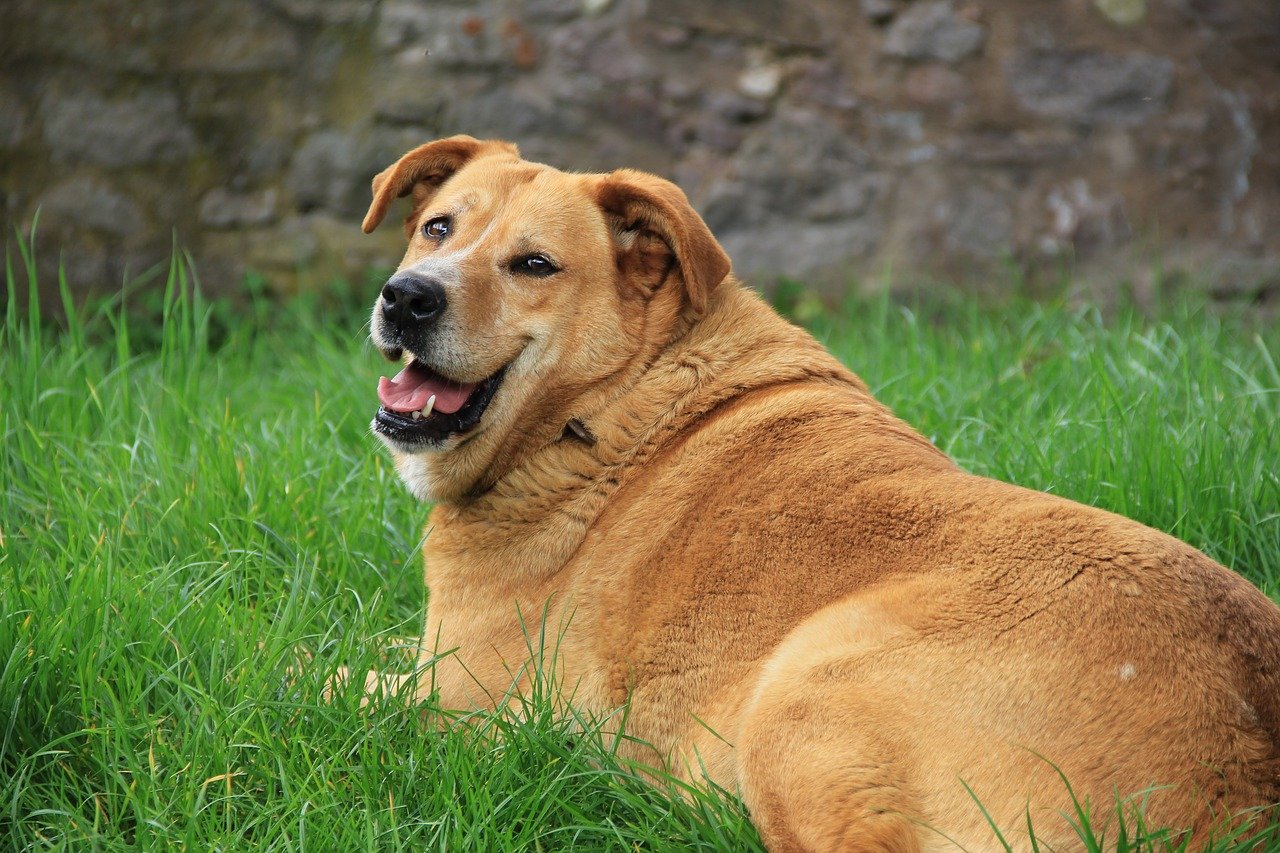Weight gain among dogs is a common issue that dog owners face today. The number of obese dogs is increasing around the world. The Association For Pet Obesity Prevention published a recent study stating that 53% of them are overweight to an extent.
It has been found that adult dogs and senior dogs have been found to have greater chances of being overweight than it is for younger dogs.
Weight gain is twice the problem for dogs because (1) it is caused by a poor diet, and (2) it can cause further health issues. If you’ve noticed your dog experiencing sudden weight gain, this is something you need to take action immediately.
How To Spot an Overweight Dog
Weight gain in dogs can be tricky to spot. Here are some things that you must observe to identify if your dog is within a healthy weight.
Noticeable waist when looking from an above angle.
The side view shows your dog’s belly tucks up towards its hind legs
You can feel his ribcage without pressing too hard on the sides.
Good appetite.
Regular urination and bowel movement.
If there is at least one of these unusual observations, visit your vet right away. Your vet can diagnose what is wrong with your dog and create a realistic plan to help get your dog back on track to better health. Weight is not quickly taken off, and you’ll need patience if you want your dog to be within a healthy weight range again.
Reasons Why Your Dog is Suddenly Fat
If the weight gain is sudden, there can be several reasons for it, and some of these are more serious than you think. You probably need to keep an extra eye on your dog before things get worse. And get the opinion of a vet with your observations so you can find the best solution.
Let’s talk about the common reasons why dogs get fat all of a sudden.
Poor Diet
As dog owners, you want the best for your dog to help them live a happy life. But sometimes, feeding them the healthy stuff is so hard because dogs get picky as they age.
You might not notice that a poor diet makes your dog gradually increase their weight over time. You won’t see as they gain weight unnoticeable every day, and one day you’ll realize that they are fatter than they should be.
For old dogs, metabolism is not as fast as it used to be when they were younger. They aren’t doing much exercise to burn up the calories, yet we feed them the same amount of food. This makes them gain weight faster. Even though they eat slower and fewer, dogs still gain weight. All extra calorie that their body does not burn gets stored as fat.
Regularly journal the weight of your dog. You can get his weight at least once a month and observe changes in his average weight. If you see around 10-15% increase in his weight, consult a vet right away so you can plan a healthy weight maintenance routine.

Lack of Exercise
Exercise and physical activity is a vital part of keeping your dog healthy and in shape. But your dog may not be getting the right exercise they need to maintain their weight.
The amount of exercise your dog needs is based on several factors: breed, size, weight, and age. But ideally, your dog should be having around 20-60 minutes minimum of exercise per day. Visit your vet and plan out an exercise routine that works best for your dog. Avoid rushing them into extreme exercises if they are not used to it. You can start low (for lazy dogs) and increase the amount of activity you do with your pet. Make sure to use these dog trackers https://technobark.com/best-dog-gps-trackers/ for tracking your dog activity
Illness
It is best to seek help from a veterinarian because weight gain (or loss) can be an effect of a more serious underlying illness.
Chronic illness like thyroid disease and Cushing’s disease has been found to cause weight gain in dogs. Either of these two illnesses requires immediate medical care that you cannot simply solve at home.
Thyroid disease, specifically hypothyroidism, is common among dogs. The thyroid produces very little of the hormone responsible for controlling metabolism. Common symptoms include decreased appetite, weight gain, hair loss, lack of energy, weakness, panting, infection, and no desire for physical activity. This illness is treated with hormone replacement therapy.
Cushing’s disease is another hormone issue where the adrenal glands produce too much cortisol. This hormone is responsible for controlling weight, responding to stress, keeping blood sugar levels in check, and fights infection in the body. Common symptoms include extreme hunger or thirst, hair loss, heavy panting, and a pot-bellied appearance. This problem is usually treated with adrenal suppressing drugs and may go as drastic as removing an adrenal tumor.

